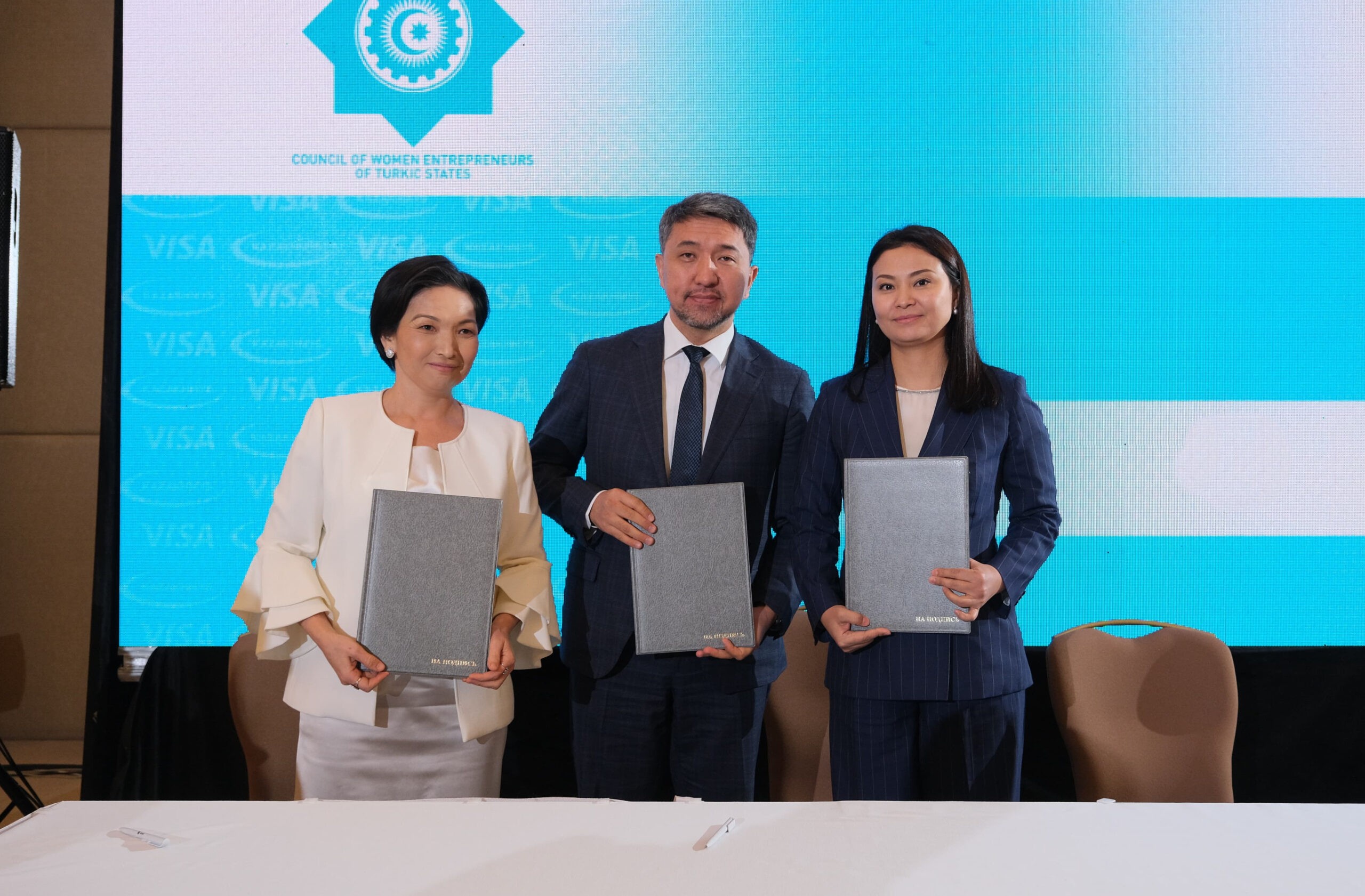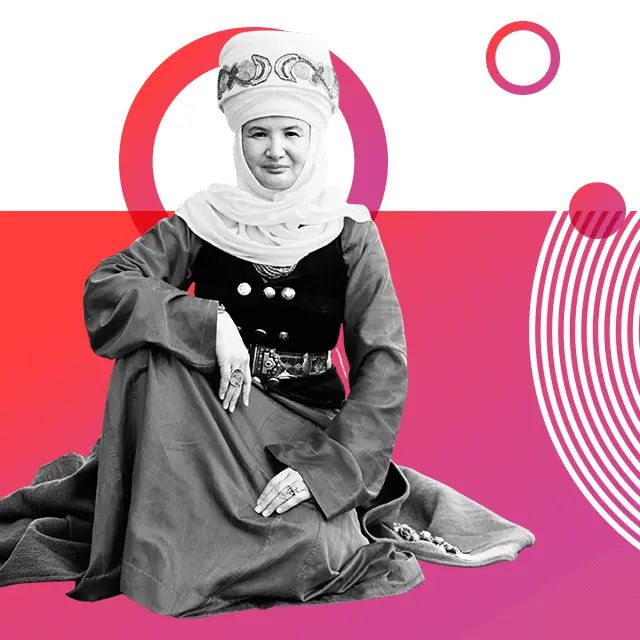The head of the Presidium of the National Association of Women Entrepreneurs of Kazakhstan (ASMAR), Lazzat Ramazanova, who currently chairs the Council of Women Entrepreneurs of Turkic States, has reported on the development of a single digital ecosystem for business in the five countries which form the Organization of Turkic States (OTS). This platform is expected to expand international trade with countries outside of the Organization.
This year, Kazakhstan chairs the Council of Women Entrepreneurs of Turkic States, which operates under the OTS and includes five member countries: Kazakhstan, Kyrgyzstan, Azerbaijan, Turkey, and Uzbekistan. Three more countries – Hungary, Northern Cyprus, and Turkmenistan – are represented in the Organization with the status of observer states. One of the goals of Kazakhstan’s chairing of the OTS was to strengthen business ties between Turkic states. To this end, the Turkic Business Hub initiative was implemented, an online platform that will become an important element of integration and cooperation in the region.
Speaking at the close of the meeting in Astana, Lazzat Ramazanova told those in attendance: “Today, within the framework of the General Assembly of Women Entrepreneurs of the Turkic World, an ambitious initiative was put forward to create a unified digital platform for business. Kazakhstan was the initiator and implementer of this idea, as our country is now among the top 25 most digitized countries. The platform has already been developed, and in Kazakhstan, we are already working with our ministries on the integration of info-systems. Now, we will work with the governments of Turkic states so that the same integration takes place with their info-systems. In other words, the software has been created, and we are working to bring other countries into it.”
The main advantage of a Turkic Business Hub is it ensures business security when choosing a partner in a given country. This is because when a user of the platform registers as a potential participant in trade relations, all information about them as a business entity is collected. Artificial intelligence automatically scans the fiscal (tax and customs) authorities and runs the business’ credit history through the hub’s integration with the databases of banks. The banks have their own interest in this system, since using it they can find clients and borrowers who have passed strict compliance checks. AI can also monitor the presence or absence of lawsuits from former partners of the entity that is attempting to register.
“In the case of detection of negative information, the entity is denied registration, i.e., from there start, there will be no ‘scam’ companies or unscrupulous counter-parties on the platform,” Ramazanova explained. “They will immediately be ‘canceled’ by the artificial intelligence based on the data from tax, customs, and other state services. But the most important thing is that in case of rejection, AI will send such the rejectee a complete summary of the reasons why they were denied registration, so the business will know what they need to correct to join the system. Once business entities that have no problems with the tax authorities, a clean credit history, and no debts and lawsuits from partners, have successfully registered, they will be able to sign contracts with foreign partners on the platform with the help of an electronic digital signature”.
Security of transactions is not the only advantage of the Turkic Business Hub. The Kazakh IT companies that participated in the creation of this platform ensured it was also convenient for users. All marketplaces operating in the country are represented on the platform, and it has a dedicated payment system. The Hub allows businesses to conclude turnkey transactions, meaning there is no need to open additional windows when concluding transactions. Now, logistics companies are becoming involved in the platform, with the developers planning to introduce a ready-made transportation scheme for supplying goods between countries.
“We plan to bring in large logistics companies to the platform in order to organize transportation for our entrepreneurs, because logistics is a very serious challenge for the countries of Central Asia,” Ramazanova stated. “We have not ruled out working with the governments of the region’s countries to subsidize the transportation costs of certain sectors represented on the platform when they enter other markets. This product is created under the direction of women’s entrepreneurs because it is primarily designed for micro and small businesses, and in our countries, women’s entrepreneurship is concentrated in these areas. However, we offer this product not only to women – it is available to male entrepreneurs as well because business has no gender restrictions.”
The developers of the Turkic Business Hub are currently preparing to present a demonstration model to OTS member countries. Additionally, there are plans to create a “room” on the platform for online negotiations between businesses from different countries. It is planned for the platform to eventually include non-OTS members. Kazakhstan sees this platform as a basis for organizing global trade, but the first step is to unite Turkic businesses. According to the Organization of Turkic States, total trade turnover between countries in the Turkic world was approximately $42 billion by the end of 2023.
Kazakhstan’s initiative has already received support from entrepreneurs from other OTS countries.
“We need to have a platform that would unite the Turkic world in the age of digital technology,” said Aizhan Chynybaeva, a member of the Council of Women Entrepreneurs from Kyrgyzstan. ”I am inspired by the pace at which the platform was created – in just one year – and if we implement it in our countries at the same pace, we will see great economic growth and the development of women’s entrepreneurship. As a representative of the hotel and tourism sector, I believe it would be good to organize separate focused meetings of different business sectors in our countries on this platform.”
Secretary General of the Turkic Chamber of Commerce and Industry, Adem Kula stated that this year a forum of financial organizations of the Turkic world will be held. It will advocate for the allocation of 20% of all funds of the Turkic Investment Fund, which started its activity in May of this year, for the development of women’s entrepreneurship. The initial capital will amount to $500 million, and the main purpose of the fund is to develop economic and commercial relations between Turkic countries. Kula believes that the Turkic Business Hub project proposed by Kazakhstan can become the core of these initiatives and a platform for the formation of joint business projects from several countries which could be financed by the Investment Fund.
In March of this year, the Ministers of Agriculture of the Turkic Five agreed to create a similar information system between OTS states. Following the meeting in Taraz, a communique was signed which highlighted the need to create a common platform for real-time data transfers, the exchange of market information and data analysis, and reports on value chains in agriculture in the region of the Organization. It is feasible that given the emergence of the Turkic Business Hub for small and medium-sized businesses, work on creating a digital counterpart for counterparts in agriculture will be accelerated.








